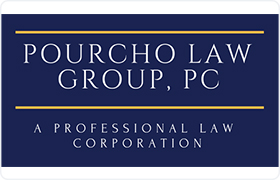North Hollywood Collection Lawyer, California
Sponsored Law Firm
-
 x
x

Click For More Info:
-
Pourcho Law Group, PC
2618 San Miguel Dr Suite 410 Newport Beach, CA 92660» view mapCollection Law Results Driven Legal Assistance
Ben Pourcho and the legal support team at the Pourcho Law Group, PC have a proven track record of providing the highest quality of legal representation to our clients.
800-936-1321
FREE CONSULTATION
CONTACTFREE CONSULTATION
CONTACTJohn Alexander Hall
Americans with Disabilities Act , Corporate, Collection, Complex Litigation
Status: In Good Standing
FREE CONSULTATION
CONTACTAlan David Wilner
Landlord-Tenant, Lawsuit & Dispute, Collection, Bankruptcy & Debt
Status: In Good Standing Licensed: 41 Years
Lauren Ross
Business, Collection, Consumer Bankruptcy, Commercial Bankruptcy, Bankruptcy
Status: In Good Standing Licensed: 42 Years
Shadi Miriam Halavi
Tax, Bankruptcy & Debt, Credit & Debt, Collection, Tax Litigation
Status: In Good Standing Licensed: 14 Years
Eric A. Spencer
Other, Lawsuit & Dispute, Corporate, Collection
Status: In Good Standing Licensed: 46 Years
Lorraine Susan Decristo
Collection, Bankruptcy, Bankruptcy & Debt, Personal Injury
Status: In Good Standing Licensed: 36 Years
 Ben Pourcho Newport Beach, CA
Ben Pourcho Newport Beach, CA Practice AreasExpertise
Practice AreasExpertise
